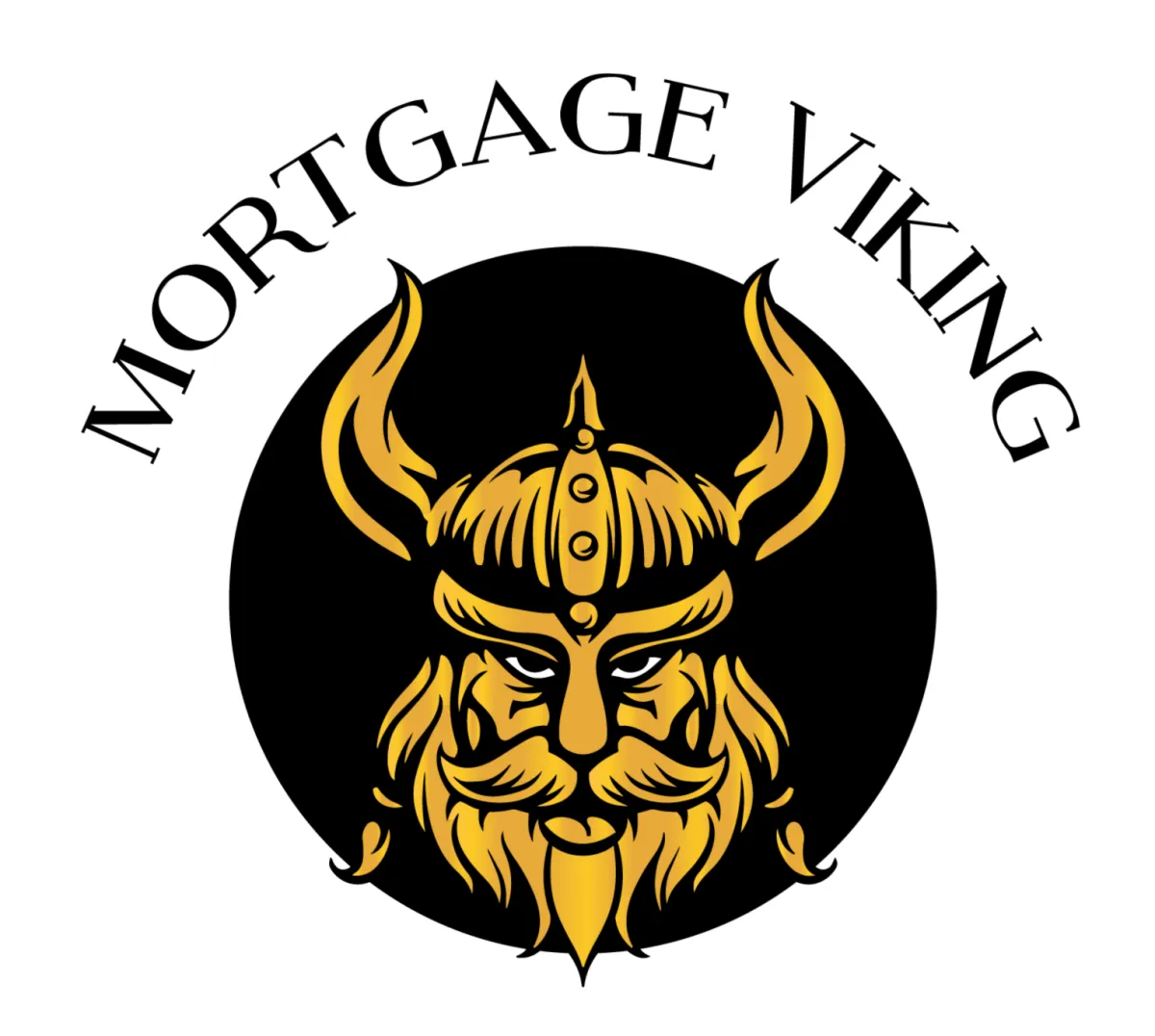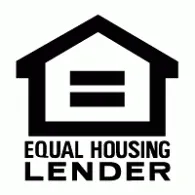ATTENTION: For Those who are serious about Getting Pre-Qualified FAST!


Bill Rapp, Mortgage Originator:
NMLS 228246
"Brokers Are Better.
Better Pricing, Better Service!"
Subscribe To My List Below To Get Your Mortgage Quote Now!
Simply enter your name and email below:


Bill Rapp The Mortgage Viking Programs:
Down Payment Assistance:


Mortgage Tax Credit:
Mortgage Tax Credit:


Offer
Accepted:
Offer Accepted:


Rate
Match:
Rate Match:


Get your interest rate matched with any other banks or companies.
Community
Heroes:
Community Heroes:


Fast Track
Closing:
Fast Track Closing:


Credit
Repair:
Credit Repair:


WITH PROVEN STRATEGIES & PROVEN RESULTS
HERE'S WHAT MY CLIENTS SAY:
What People Are Saying:

Excellent Service
Bill is an exceptional loan officer. He helped us to purchase our home with very personal and professional service. He helped us navigate the whole process from start to closing without any problems. We didn't think we're qualified to purchase a house, but Bill went above and beyond to find a way to help us achieve our goal. He always responded very quickly with our requests, he would come back with different options with comparison chart to clearly indicate how much we need for down payment, monthly payments, interest rates, closing costs etc.
We would highly recommend Bill to anyone in need of lending services. In fact, we have already recommended Bill to one of our friends on purchasing a house.
--- David Chan - Houston, TX

Bank Statement Lending!
William Rapp of Network Funding, L. P. was very professional and I felt comfortable in dealing with him. I will definitely recommend him to family and friends.
--- Ian F - Missouri City, TX

Professionalism - Expert In Home Style Loan
Bill is an expert in the topic, his explanations and online material make a difference and he is always there from the beginning to the end. He is committed to make thing happen.
--- Felipe Caldern & Carolina Angel Gutierrez

Great Service!
Bill Rapp's handling of our loan (even though out of state) was unparalleled to any service I have been through prior, including 3 different real estate transactions and multiple refinances. Extremely quick close, with great options and flexibility for my families needs. All around A+
--- Chris & Beth Sheehan - San Jose, CA

Knowledgeable and Responsive!
Bill was a pleasure to work with and he made the loan process fairly easy. He answered all questions I had very quickly and was straight forward in doing it. I would recommend Bill to others.
--- Wes Brady - Richmond, TX

Very professional and always returned our calls!
Bill takes a lot of pride in his job and is very dependable. They were very patient and understanding. He went out of his way and explained all my questions and concerns. They were very professional and returned my phone calls and emails. He did a great job and I fully recommend him.
--- Therese, Malcom & Shirley Teixeira - Katy, TX

Great Job!
Bill helped us out from beginning to end of loan process. The loan closed in a timely manner as Bill worked hard with bank to get our to the final steps.
--- Kamal & Theresa Wilson - Hartford, CT

Avid Problem-Solver and Absolute Pleasure to Work With!
Bill Rapp worked very hard to ensure that we closed our loan and were able to move into our new home. He always had alternatives to any problems we encountered while closing. He worked with us from the beginning identifying solutions to any problems that we were having. He was an absolute pleasure to work with!
--- Nikita Rayani & Sanit Tejani - Houston, TX

Awesome to work with!
Being a first-time buyer I came in with lots of questions and concerns. Bill was always available for any questions I had and answered everything to my satisfaction. Bill made the loan process so painless that I could still concentrate on other things. We ended up closing early which made things even better. If you are in need of a lender and want someone who is very approachable and stays on top of your loan then Bill is your guy.
--- Cesar Raya - Richmond, TX

Loan Declined by my bank, and he saved the day!
Bill, did an amazing job helping me close on my house. He took the reigns and reassured me the best route to take to help close. He was accountable, thorough and trustworthy. I will continue to work with Network Funding, L.P. when it comes to home buying in the future because of the quality of service Bill gave.
--- Jacob Smith - Boerne, TX

Bill Rapp Will Definitely Make It Happen!
Bill is the most kind, patient and helpful person I have ever known. He answers his phone calls and emails promptly. You can ask him a million questions, and he will answer each and every one of them. Before I started working with Bill, I had been turned down for a home loan, because of some past credit issues I had, plus I was a single mother. However, once I started working with Bill, he was able to quickly get me a home loan, with a good interest rate. I would recommend that you call him, as he will help you.
--- Corinne Wilson - Roselle, NJ

Knowledgeable, Honest, Trustworthy, and Reliable!
"I will definitely keep you in mind. If anyone I know needs financing, I will send them your way!"
--- Jon & Andrea Saleem, CRPC Financial Advisor - Houston, TX

Best Dam Mortgage Guy a man could know!
"Hands down the best loan experience to date!"
--- Gabe & Chelsea Jackson - Pearland, TX

Phenomenal, Hard Working and Never Quits!
Had a stupid foreclosure that could have been avoided if ex’s attny would have sent my buy out offer. So Bill was able to push this through with a 4 year foreclosure. He worked his butt off, was very diligent with his communication; and was very professional talking to me even when I was screaming and/or crying at him. Highly recommend this lender. He really go to the ends of the earth to help you!
--- Liz Keeter - Harlingen, TX

Exceptional customer service!
Bill is the most kind, patient and helpful person I have ever known. He answers his phone calls and emails promptly. You can ask him a million questions, and he will answer each and every one of them. Before I started working with Bill, I had been turned down for a home loan, because of some past credit issues I had, plus I was a single mother. However, once I started working with Bill, he was able to quickly get me a home loan, with a good interest rate. I would recommend that you call him, as he will help you.
--- Isha Lopez & Mauricio Garcia - Houston, TX

Service with a capitol S
Bill went above and beyond at every turn. He worked late on Saturday, he worked late all the time. We wanted to close ASAP and he really helped make it happen for us.
--- Jeff & Wendy Heger - Houston, TX

Best Buying Experience!
I would would highly recommend going with Network Funding LP. As a first time home buyer I didn't know what to expect. Bill Rapp was very helpful in answering all my questions and guided me through all ghe steps. I couldn't have asked for a better buying experience!
--- Tabitha Turner - Humble, TX

Would recommend him and use him again!
Very involved and professional . Kept me informed and up to date on everything that was going on Went with me closing and was very helpful and knowledgeable.
--- Kathy Ward - Houston, TX

Great experience!
Well I meet bill back in December 2016 he got recommended by my real estate agent we had a house in sight and started the process to get approved but we fail due to my work history and credit bill told me not to give up and put me in contact with a credit repair company they help me bring my score up and bill walk me thru the process of getting a new line so this time around we got approved before looking for our house after we found it we still had a couple of hick up but with bills help on Sunday 6-18-17 to be exact Father's Day bill called me to give me the great news that we had got approved and the closing date was as scheduled bill was more than just a lender to my family he became a friend and I'm alway going to have him in mind for any other financial situation.
--- Alejandres Felimon - Richmond, TX

I really liked his attitude!
I wouldn't usually say this but the way he had handled my mortgage was really pleasant. I personally enjoyed the time spent with him while we discussed feasible rates. He's a great man with a great personality and he offered really low interests as well. Definitely recommend him to others.
--- Tom Troiano - Atlantic City, NJ

He's nothing short of a miracle!
I'm a self-employed businessman and had him figure out the mortgage of the house after 30% down payment. The interest rates I received were incredibly low given what I had thought of earlier. One other important thing to note was that I hadn't really taken any loans earlier, so I had no credit history. He helped me out with all that as well so I can't really call him anything else but a miracle.
--- Fran Suarez - Cleveland, OH

He's really helpful!
I made a bid to him and the very same day he gave me an offer which I couldn't resist. It was too intimidating with those incredibly low interest rates and all, thoroughly recommend him.
--- Kenny Mickle - Houston, TX

Expeditious!
Bill was very expeditious and made it real easy going through the loan process. I felt he was on top of things.
I deal with investment properties and will more than likely call on him again.
--- Wayne King - Pensacola, FL

Bill was great!
Bill made us feel like a friend all the way thru the process. He was patient and explained everything he needed clearly. He was available ANYTIME we had questions or needed more information. Hopefully we won’t go thru this process again anytime soon, but if we do - we’d choose Bill! =)
--- Barbra & Nick Grimmer - Austin, TX

Great broker!
Bill was a great broker to work with. As first time home buyers we had many questions about the process, Bill took the time to help us even calling us back on weekends with answers. I would not hesitate to recommend him to anyone looking for a broker to work with.
--- Murray & Lisa Turner - Pensacola, FL

Outstanding service!
I couldn't have been more pleased with Bill's level of service. He made what is typically a lengthy, arduous process far quicker and easier at every turn. I'm extremely comfortable recommending Bill to friends and family, and will definitely utilize his services again!
--- Jim Lipari - Austin, TX

Getting a jumbo or a Non-QM mortgage is easier than you might think. This guide will help you understand what a jumbo loan is and whether it’s right for your financial profile.
What Is a Jumbo Loan or a non-QM Loan?
Another name for a jumbo mortgage is a non-conforming mortgage. This is a loan a lender makes you that doesn’t “conform” to the guidelines of Fannie Mae and Freddie Mac. Created by Congress in 1938 and 1970 respectively, Fannie Mae and Freddie Mac provide stability and affordability to the mortgage market by buying “conforming” mortgages from lenders, which gives lenders liquidity to make more mortgages.
Fannie Mae and Freddie Mac only buy mortgages meeting their guidelines for down payment, credit score, post-closing reserves, and loan amount.
In 2022, the conforming loan size limit for a one-unit home is $647,200 nationwide, but can go higher in certain high-priced markets. Here is a link to the current Fannie Mae Mortgage limits:
https://www.fanniemae.com/singlefamily/loan-limits
Loans greater than these limits are usually called jumbo mortgages, but can also be called non-conforming mortgages.
Questions about jumbo loans or Non-QM loans?
Bill Rapp is a Jumbo Mortgage expert and can help answer any question you may have. 281-222-0433
When Should I Use a Jumbo Mortgage?
You’d use a jumbo mortgage when you’re seeking a loan amount that’s greater than the conforming loan limit in your area. In most of the country, that means you’ll use a jumbo mortgage if your loan amount is greater than $647,200.
In certain areas that are deemed high cost, the conforming loan limits go above $647,200, and you have to look up your area’s loan limits to know exactly. The FHFA site has this information.
But don’t assume this applies if you’re in an area where your conforming limit goes above $647,200. You must ask your specific lender what kind of loan you’ll be eligible for.
Is Qualifying for a Jumbo or Non-QM Mortgage Different?
Jumbo mortgages have the same overall qualifying methodology as a conforming loan. Lenders will look at credit score, down payment size, total monthly debt obligations relative to income (called your debt-to-income ratio), and money left over after closing.
Credit score requirements are about the same for conforming and jumbo: a credit score down to 660 generally gets you most available loan options, albeit with a higher rate than you’d get with a top-tier credit score of 760 or greater.
As for money left over after loan closing — often called reserves or post-closing liquidity — jumbo loans will be more stringent than conforming. Typically jumbo lenders want to see 12 months of reserves after the close, half liquid (in a checking or savings account), and half calculated from retirement assets. Conforming loan reserve requirements range from 0 to 12 months, depending on factors such as credit score, down payment, and DTI . Jumbo exceptions are available if your debt-to-income ratio is low and your down payment is high.
However, jumbo loan approvals have some flexibility that conforming loans don’t have:
* Higher debt-to-income ratio. For most conforming loans with 20 percent down or greater, lenders will usually require that your total monthly housing payment plus all other monthly bills doesn’t exceed 43 percent of your income. But there can be some flexibility on non-conforming loans. For example, if you documented substantial cash reserves left over after the loan closed, you might be able to get a jumbo loan with a debt-to-income ratio higher than 43 percent.
* Flexible income calculations. Jumbo income calculations can be more logical than conforming. For example, if you were in the same industry for 15 years and recently started your own business in that industry, a conforming loan would require you to show two years of filed self-employed tax returns. A jumbo loan might only require one year of filed returns if you could document that the business was stable or growing.
* Less than 20 percent down with no mortgage insurance. Down payments on jumbo loans can be as little as 10 percent for loan amounts of $1 million and sometimes higher, translating into a $1.1 million purchase price or higher. Unlike conforming loans, these low-down jumbo programs don’t always require mortgage insurance. The tradeoff for this flexibility is that most lenders will offer a rate that’s about .25 percent higher and require 30- to 36-percent debt-to-income ratios for these low-down jumbos.
* Piggy Back loans can be used to do a first and a second mortgage to allow for as little as 5% down when buying a home that traditionally will fall into the Jumbo category. Take for an example of a $750,000 sales price. With a $450,000 first, Less than 20 percent down with no mortgage insurance. Down payments on jumbo loans can be as little and $262,500 second mortgage you will only need 5% or $37,500 down. Second liens of this size are a true specialty product.
Qualifying for a Jumbo or Non-QM Mortgage
If you have your sights set on a home that costs close to half a million or more – and you don't have that much sitting in a bank account – you're probably going to require a jumbo mortgage. And if you’re trying to land one, you’ll face much more rigorous credit requirements than homeowners applying for a conventional loan. That’s because jumbo loans carry more credit risk for the lender, due to their lack of a Fannie Mae or Freddie Mac guarantee, as mentioned above. And, of course, because more money is involved.
As with mortgages in general, minimum requirements for a jumbo have gotten increasingly stringent since 2008. To get approved, you’ll need a good credit score – 680 and above —and a low debt-to-income (DTI) ratio – under 43%, at least, and preferably closer to 36%. Although they’re nonconforming mortgages, jumbos often still must fall within the guidelines of what the Consumer Financial Protection Bureau considers a “qualified mortgage,” a lending system with standardized terms and rules, such as the 43% DTI.
You’ll need to prove you have accessible cash on hand to cover your jumbo mortgage payments, which are likely to be very high if you opt for a standard 30-year fixed-rate mortgage. Specific income levels and reserves depend on the size of the overall loan, but all borrowers need pay stubs dating back 30 days and W2 tax forms stretching back two years. If you're self-employed, the income requirements are greater: two years of tax returns and at least 60 days of current bank statements. The borrower also needs to prove that he or she has the liquid assets to qualify and cash reserves equal to 6-12 months of the mortgage payments. And all applicants have to show proper documentation on all other loans held and proof of ownership of non-liquid assets, like other real estate. How much you can ultimately borrow depends, of course, on your assets, your credit score and the value of the property you're interested in buying.
Down Payment on Jumbo or Non-QM Loans
On the even brighter side, down payment requirements have loosened over the same time period. In the past, jumbo mortgage lenders often required home buyers as little as 5% of the residence's purchase price.
You could attribute all these low rates for interest and down payments to the fact that banks are generally very eager to find new customers for their jumbo loan packages. Jumbo mortgage borrowers are likely to be, or are on the road to becoming, the sort of high net worth individuals institutions love to sign up for long-term products. Such clients have an excellent credit history, plenty of assets and, often, the need for additional wealth management and investment services down the road. Plus, it's more practical for a bank to administer a single $2 million mortgage than 10 $200,000 mortgages.
Who Should Get a Jumbo or Non-QM Loan?
These mortgages are considered most appropriate for a segment of high-income earners who make between $250,000 and $500,000 a year. This segment is known as HENRY, an acronym for "high earners, not rich yet,"; it refers to people who generally make a lot of money but don't have millions in extra cash or other assets accumulated – yet.
While an individual in the HENRY segment may not have amassed the wealth to purchase an expensive new home with cash, such high-income individuals do usually have better credit scores and more extensively established credit histories than the average home buyer seeking a conventional mortgage loan for a lower amount.
Along with having more well-established credit, high-income earners also tend to have more solidly established retirement accounts. They have often been contributing to such investment accounts for a longer period of time than lower-income earners. They have usually contributed more funds to such accounts, so that the account balances represent substantial sums.
The Tax Implications of a Jumbo or a Non-QM Loan:
Just because you could qualify for one of these loans doesn't mean you should take it. You certainly shouldn't if you are counting on it furnishing you with a substantial tax break, for example.
You’re probably aware that you can deduct from your taxes the mortgage interest you paid for any given year. But you probably never had to worry about the cap the IRS places on this deduction. You can deduct the interest as long as the mortgage itself is $1 million or less. If your mortgage is larger, you don't get the full deduction. For example, if you took out a $2 million jumbo mortgage that accrues $60,000 in interest a year, you can only deduct $30,000 – the interest on the first million of your mortgage. So, you only get a tax break on half the mortgage interest, in effect.
And even though jumbos' interest rates are coming more into line with conventional mortgages', it still might behoove you to crunch numbers and compare terms, to see if taking out two smaller conforming loans, instead of one big jumbo, might prove better for your finances in the long haul.
Best Practices for Obtaining a Mortgage
For most people, buying a home is the single largest purchase they will ever make. There's a whole world of new terminology, policies, procedures, information and documentation to wade through and understand. Even if you are buying for the first time, it can be an intimidating process...
That's why it is crucial that you have an expert help you navigate the process and keep everything working and on track. You wouldn't even think about trying to represent yourself in court, why would you consider buying a house without an expert to help guide you?
The main question is what expert should you choose? Should you have a mortgage broker, a mega bank, or a mortgage banker help you?
It’s also important to note that you must have good communication with your broker or lender. This person will be a stakeholder in your financial future. You want a competitive rate on the loan, but don’t lose sight that this person can help navigate the loan process and side step the mortgage pitfalls along the way.
Also, should you have your own real estate agent to help navigate the process, or just work with the person who has the house listed?
First, let's talk about real estate agents. Some agents represent the seller in the transaction. They are called sellers agents and have a fiduciary responsibility to the seller. A fiduciary responsibility is just a fancy way of saying that a professional owes the beneficiary of the responsibility the highest and best care.
It doesn't mean that professionals can lie or be dishonest with other people, but it means they have to keep the beneficiary's interest first in their mind when they are working for that person.
So seller's agents have a fiduciary responsibility to the seller of the house.
Some agents are buyer’s agents, and they have a fiduciary responsibility to the buyer. Makes sense, right?
And finally, there are agents that call themselves transaction brokers. They don't have a fiduciary responsibility to anyone in the transaction...they just want to get the house sold.
I know this can all be very confusing, so let's just cut to the chase...in my opinion you should always find a real estate agent who represents you. If you're a buyer, find a buyer's agent. A buyer's agent has a legal and ethical responsibility to look out for the buyer's best interest.
Mortgage Banker or a Bank?
Well, obviously as a mortgage banker I have a vested interest in the answer to this question. That said, I honestly believe a mortgage banker is a better choice...and I'll tell you why. First, as a broker I have access to far more lenders than your bank...who, generally speaking, will only lend money based on their in house lending programs. That means I normally can get borrowers far better rates than their bank can offer. That's because I can generally place loans with traditional banks, through their “wholesale” mortgage department...but I can also place loans with companies that are strictly mortgage lenders.
Sometimes I can even arrange better rates at your bank. Not all the time, but it does happen occasionally.
How is that possible?
Well, wholesale lenders, and wholesale divisions of retail lenders, know they are competing among professional brokers with countless other lenders. Your bank, on the other hand, knows you are not likely to shop your business to 100 lenders. If you happen into your bank, chances are you aren't shopping at all. Or if you are, you'll make 2 or 3 phone calls. The wholesale loan reps I talk to know I have access to countless lenders, so they are willing to be more aggressive in the rates they will give my clients.
I understand some borrowers have close relationships with their bank and want to keep all of their financial transactions with that particular bank. That made a lot of sense decades ago. Not so much sense today. You see, even if your bank originates your loan, there is a very good chance that they will sell it within a few months after closing. That's how the financial system is set up today.
So even if you think you are doing business with your bank, you'll end up doing business with a company that purchases loans from banks who originate them.
Wouldn't that be frustrating...agreeing to pay .5% more on your mortgage so you can stay with your bank, only to have your bank sell your mortgage to another company anyway?
For good or bad, your bank thinks of you as a profit center. I'm not referring to the local people in the branch, who you may have a very nice relationship with. I'm talking about the people who run the bank. It's their job to make as much money as possible, and they do that by taking advantage of the local branches relationship with you.
That's not bad, per say. But it does mean you shouldn't allow that relationship to alter your financial decisions that are in your best interest.
So in short, by all means check with your bank regarding rates and terms, but find a good mortgage banker to help you get quotes from other lenders as well. And always, always, go with the lender who offers the best terms for you!
Now should you bank or other loan professional tell you they can’t do you loan. Don’t be embarrassed. Chances are you are simply talking with the wrong person. It’s not what you know. In real estate, it’s who you know.
Click the link above or below to schedule a free no-obligation consultation with a mortgage expert who can get your deal closed on time with as little stress as possible!
Click the contact me link to reach out and have a chat with the “Mortgage Viking” today 281-222-0433!
Foreign National Mortgages: You Don't Have to Be a Citizen to Get a Home Loan
"Foreign national mortgages" are simply loans for non-US citizens. And, perhaps surprisingly, even loans guaranteed by the American government are available to residents of this country who aren't citizens.
So the idea that only fully fledged Americans can get mortgages in this country is a complete myth. But some foreign national mortgages do come with special conditions. So do read on to discover more.
You can be foreign, but you must be legal
Let's make one thing clear; if you're here illegally, your chances of getting a mortgage legitimately are close to zero. That's because mainstream lenders routinely require ID. And those requirements include social security numbers plus green cards or visas or work permits that prove you have a right to remain.
Do some find ways around this? Perhaps, with private money or owner financing. But anything involving a mainstream lender would have to involve fraud. Get caught, and you'd likely be facing a prison term prior to automatic deportation.
Rules for resident foreigners
It's generally not hard to find a mortgage for non-US citizens. There are two main categories of legal resident foreigners:
1. Permanent residents -- With green cards and long-term residency rights
2. Nonpermanent residents -- Your residency rights are typically dependent on your employment. And you should have an employment authorization document (aka work permit) or a special visa sponsored by your employer. You may have a different sort of nonwork visa if you're very rich
If you fall into either category, you're likely eligible for a mortgage. But you may face more obstacles if you're in the second.
Permanent vs nonpermanent
If your residency entitlement is not permanent, expect to have to show you're probably going to be able to remain for at least three more years. And, if your work permit or visa has less than 12 months to run, your lender is obliged to investigate the likelihood of your getting to stay.
Federal Housing Administration (FHA) loans are particularly friendly to nonpermanent residents. Its rules say that, if your special visa or work permit has already been renewed one or more times, lenders can assume you're here to stay.
Refugees and those granted asylum
If you've been officially given refugee status or have been granted asylum, the news is good. You automatically have a right to work. And your chances of getting a mortgage are the same as everyone else's. Of course, you're going to have to provide your immigration paperwork. And lenders will likely audit it.
Credit scores an issue for many
You might assume your hard-earned credit score that you built up in your homeland would seamlessly transfer to the US. But no. Even though America's Big-3 credit bureaus (Equifax, Experian and TransUnion) all have subsidiaries in the countries -- except China -- where most foreign buyers live, your score in your homeland counts for little.
Unless you've been here for several years, your US score is likely to be too low for many mortgage lenders. That's not because you're necessarily a bad risk. It's simply because you haven't borrowed often enough for long enough to build up a solid history. You have what the credit industry calls a "thin file."
However, most programs from Fannie Mae, Freddie Mac and the FHA allow manual underwriting and non-traditional credit reports. These consider your rent payments, utilities and other expenses. Note that most programs require higher minimum down payments when the underwriting is manual.
Related: Can Rent Payments Help Your Credit Score?
Nonresident foreign buyers
Even those with no right to reside in America may be eligible for a mortgage for non-US citizens. But they're hit particularly hard by that credit score issue. And lenders might worry about how they'd enforce a debt when you live in a foreign jurisdiction. Worse, you're not eligible for mortgages backed by Fannie Mae or Freddie Mac, nor those guaranteed by the government (FHA, VA and USDA loans), if you don't have an American social security number.
So don't expect the sorts of deals citizens and residents typically get. Chances are, you're going to need a down payment of 30%-50% of the purchase price. And your mortgage rate will be noticeably higher than a resident would pay.
Welcome to America
The United States was founded by immigrants. And it has a proud history of welcoming them.
Lenders make lending decisions and determine mortgage deals on the basis of risk: your creditworthiness, the size of your down payment, your financial resources and the amount you owe on other debts. When it comes to determining those deals, you're likely to be on a level playing field, regardless of your citizenship status -- providing you're living here legally.
Click the contact me link to reach out and have a chat with the “Mortgage Viking” today 281-222-0433!
Bank statement mortgages for self-employed
Mortgage companies need to verify your income before they’ll approve you for a home loan. They usually do this by looking at W2 tax forms. That can be a problem if you work for yourself.
Business owners, freelancers, contractors, and seasonal or gig workers likely won’t have the tax forms needed for a traditional mortgage. But if you have non-traditional income, you might be able to get a “bank statement mortgage.” That means you simply prove your income by showing one or two years of regular bank deposits.
Mortgage math for self-employed borrowers
When going through the process of buying or refinancing a home, there are specific steps to undergo.
One such step requires documenting your income. That including savings, retirement, investment balances, and debts. This can be challenging for self-employed mortgage applicants. These folks often have hard-to-document income and/or business expenses. For instance, a self-employed worker might say they earn $7,000 a month. But after business write-offs, their taxable income might only be $5,000 a month. This could reduce their home buying budget by more than $150,000.
So, you’re self-employed. You have a strong credit score and a solid financial track record. But you’re having trouble qualifying for a mortgage because you don’t have traditional W2s.
Fortunately, a bank statement loan program may be an ideal solution.
Here we explain how bank statement loans work and how to find out if you’ll qualify for one.
What is a bank statement mortgage program?
A bank statement mortgage allows you to verify your income on a mortgage application using documented bank deposits in place of tax forms. Traditional mortgage loans involve providing tax returns, W-2s and paycheck stubs in order to verify monthly income.
But providing those documents might be difficult for some people.
Instead, mortgage applicants may opt for a bank statement loan.
Using bank statements to qualify for a mortgage instead of W2s might be a good idea if:
* You don’t have traditional tax documents to verify your income
* You have tax documents, but due to write-offs, your income looks smaller than it really is
Before the housing downturn of last decade, stated income loans were one of the more common programs for applicants who couldn’t prove or verify their income. Those went away after the mortgage crisis in favor of stricter mortgage laws.
But today, bank statement loans have become increasingly popular over stated income loans because they offer less risk to lenders. That’s because borrowers don’t simply “state” their income.
Via bank statement loans, applicants must use documented monthly deposits in order to qualify.
Who should get a bank statement loan?
If you’re a business owner or an independent contractor without a salaried income, getting qualified for a traditional home loan can be difficult.
A bank statement loan can help. Bank statement mortgages are typically used by:
* Self-employed applicants
* Independent contractors
* Workers with seasonal income
* Gig workers or freelancers
* Other earners with irregular income streams
Self-employed applicants are the most common folks to benefit from bank statement loans.
A bank statement loan can help these people get a loan relatively easily, and even qualify for a bigger home than they would with a traditional mortgage.
Types of bank statement loans
Depending on the lender and your specific situation, there are different bank statement programs available. While most lenders require a minimum of 12 months of bank statements, some lenders may require less. Although not always required, if applicants can provide 24 months of statements, they may qualify for better rates and terms. Most lenders require 12 months worth of bank statements. But you might qualify for a better rate and terms if you can show a 24-month history.
In addition, some lenders may want you to use business bank statements as opposed to personal.
If you don’t have business bank statements, you may still be able to use your personal statements with those lenders. However, they might use a smaller percentage of your deposits for qualifying purposes.
In some cases borrowers also may be required to provide a profit and loss (P&L) statement for their business prepared by a tax professional.
Potential drawbacks to bank statement loans
Fortunately for homeowners that can’t provide the usual income verification, bank statement loans are becoming increasingly common. But they’re still considered a little higher risk than “traditional” mortgages. And that means there’s a trade-off between lenders and borrowers. The trade-off typically comes in terms of a higher interest rate and higher down payment requirements.
Bank statement loans typically have a higher interest rate and bigger down payment requirements.
These are meant to offset the risk associated with not being able to show income via traditional methods.
The exact rate and necessary down payment for bank statement loans are usually based on credit scores.
Remember, rates and terms vary a lot by company. Talk with more than one mortgage lender to see who has the lowest rates and best terms on the loan you need.
How to get a bank statement mortgage
Bank statement mortgages are categorized as “non-qualified mortgages” (Non-QM) since they don’t conform to conventional lending standards. Since they’re considered to be Non-QM, not all lenders offer bank statement mortgages. In fact, many banks and credit unions choose not to offer these types of loans.
You might have better luck with a company that exclusively does mortgage lending.
If you don’t qualify for traditional mortgage financing, contact several lenders to determine if they offer bank statement programs or other programs for self-employed applicants.
Be sure to ask about the lender’s requirements for personal vs. business statements. You should also inquire as to how many months of statements are necessary.
And don’t forget to ask about down payment requirements and interest rates.
Rates and down payment requirements vary from one lender to the next. It’s always good to shop around the find the lowest rate possible.
Click the contact me link to reach out and have a chat with the “Mortgage Viking” today 281-222-0433!

💸 Rate Cuts: What’s Next for Investors?
💸 Rate Cuts: What’s Next for Investors?
🌟 Powell’s Plan: Balancing Inflation & Jobs
Hey everyone! 📢 Big news from Federal Reserve Chair Jerome Powell! He just hinted that we might see a rate cut as early as September! 🗓️ This announcement is creating quite a buzz across various sectors, especially in commercial real estate. Let’s break down what this could mean for us! 🏢💼
The Balancing Act ⚖️
So, the Federal Open Market Committee (FOMC) decided to keep the current interest rate range at 5.25% to 5.5%. Why? They’re being super cautious about not loosening monetary policy too soon. The goal? Prevent inflation from making a comeback while also avoiding any further weakening of the labor market. 🎯 It’s a tricky dance they’re performing to keep the economy stable! 💃🕺
Zoom In: Commercial Real Estate Benefits 🏢📈
Guess what? A potential rate cut could be a game-changer for the commercial real estate sector! 🏢✨ This market is already heating up thanks to improved price discovery and the need for lower pricing. 🔍📉 According to the Commercial Observer, market adaptations and upcoming loan maturities are playing a big role here. Lower interest rates could add more fuel to this fire, making commercial properties even more attractive investments. 💸🔥 #RealEstateGoals
Dual Mandate Dynamics 🏛️📊
Powell’s latest comments suggest a shift from a strict anti-inflation stance to a more balanced approach. 🧘♂️ He’s looking at both employment and price stability now. With the unemployment rate creeping up to 4.1% and hiring slowing down, the Fed aims to manage these factors without tipping us into a recession. This nuanced approach is key to keeping the economy healthy. 🌱💪 #BalancedEconomy
Why It Matters 🔍📝
The Fed is really walking a tightrope here. They’re hinting at possible rate cuts but keeping their options open. This flexibility is crucial, especially since inflation is still a concern. Meanwhile, the Fed is slowly reducing its balance sheet by shedding Treasury securities, agency debt, and mortgage-backed securities. 📉 This careful maneuvering aims to keep inflation in check without stifling economic growth. 🌟📈
The Takeaway 🎯💡
For the commercial real estate market, the prospect of a rate cut is like a ray of sunshine on a cloudy day. 🌤️ Lower rates could mean more affordable financing, which would spur investments and development in the sector. 🏗️💸 As the Fed navigates its dual mandate, those of us in commercial real estate should stay tuned for more developments that could reshape our market landscape in the coming months. 🌐📅
So, keep your eyes peeled and stay informed! 🧐👀 The potential rate cut could bring new opportunities our way. Let's be ready to seize them! 💪🚀 #StayTuned #CommercialRealEstate #EconomicUpdates
I’m an experienced Commercial Real Estate Mortgage Broker, please feel free to reach me at 281-222-0433.
https://medallionfunds.com/bill-rapp/
https://www.billrapponline.com/
https://houstoncommercialmortgage.com/
https://findamortgagebroker.com/Profile/WilliamRappJr28883
https://doctorvideo.billrapponline.com/
https://veteransvideo.billrapponline.com/
https://mortgageviking.billrapponline.com/
https://fha203h.billrapponline.com/
https://renovationvideo.billrapponline.com/
https://www.smartbizloans.com/partner/vikingenterprisellc/bill
https://www.fastexpert.com/loan-officer/bill-rapp-95119/
https://billrapponline.com/financingfuturescre-houston-katy
https://www.smartbizloans.com/assist/partner/vikingenterprisellc/expcommercial
© 2023-2024 Bill Rapp, Medallion Funds LLC, Director of Capital Advisory
3. Pre-Qualify for Your Loan Amount
Pre-qualifying is important, but not required. By choosing to complete this step you can save some time and potential surprises later in the process. To pre-qualify for your loan amount, you’ll have a candid conversation with your VA loan professional about your income, credit history, employment, marital status and other factors. Giving your lender complete details during the pre-qualifying step can help prevent surprises later during underwriting. The pre-qualifying step can also reveal areas that need improvement before you can be approved, such as credit or debt-to-income ratio. While a prequalification letter gives you a ballpark price range for house hunting, it does not guarantee that you will be approved for a loan, and your lender will later have to verify the information you provide. To get a loan requires later final approval by underwriting once all documents have been received and reviewed (see Step 5).
5. Lender Processes Application
& Orders VA Appraisal
A signed purchase contract is the document you’ll need to finish your initial application. Once your lender has the contract, they will order the VA appraisal. Here again, not just any appraiser will do. Only a professional who is certified to perform appraisals to VA standards can evaluate the home being considered for VA financing. The VA appraiser will make sure the price you’ve agreed to pay for the home corresponds with the current value. Another very important part of the VA appraisal is to inspect the home to make sure it meets the VA minimum property requirements (VA MPRs). However, the VA appraisal does not take the place of a home inspection, which focuses on code violations, defects and the condition of the property. While many borrowers have heard horror stories about the length of the VA appraisal process, the Department of Veterans Affairs gives the appraisers 10 days from order to completion barring extenuating circumstances. While you’re waiting for appraisal documents, you’ll be busy submitting documents of your own to your VA-approved lender to show you have the ability to qualify for the loan. If the home passes appraisal for value and VA minimum property requirements, and it’s verified by the lender that you qualify for your loan, the underwriter will give his or her stamp of approval.
6. Close on Your Loan and Move In
After being approved by the underwriter, all that is left to do is close and move in. During closing, the property legally transfers from the former owner to you. Closing is a step that requires you to sign documents that confirm you understand and agree to the terms of the loan. You will need to provide proof of homeowners insurance and, if required, pay closing costs. Once you’ve signed all your closing documents, you’ll get the keys to your new home.
While these steps may not happen in the order above or be a required part (such as prequalification)*, they represent the typical process for the applicant in obtaining a VA purchase loan. Your lender may need to take other steps. For more information about VA loans, contact an experienced VA-approved lender.
My best advice to you is to call Bill Rapp, the Mortgage Viking, today to discuss your options 281-222-0433.
Main Office:
Medallion Funds
[email protected]
11920 Southern Highlands PKWY Suite 302Las Vegas, NV 89141
Texas Complaint and Recovery Fund Notice



